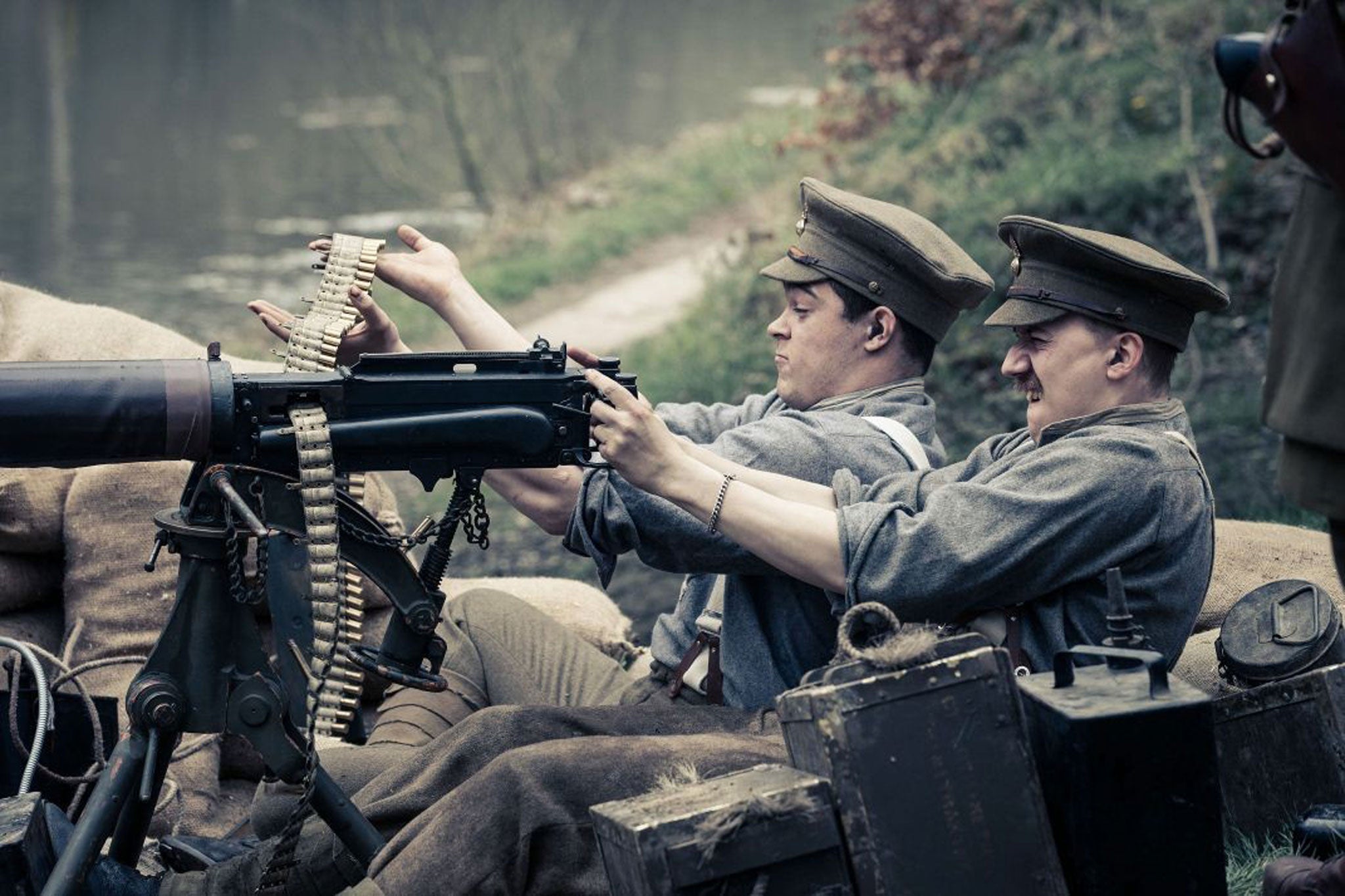One World War, TV review: Jarring modern touches mean Great War story badly misfires

The soldiers of 1914 probably didn't listen to quite so much throbbing techno but, soundtrack aside, Our World War on BBC3, aimed to re-create the Battle of Mons as it really was, based on the diary entries and later testimony of those on the front line.
The inspiration for this three-part combat drama was Our War, a BBC3 documentary from a few years back that gave the first-person view of contemporary warfare in Afghanistan. Presumably the idea here was to bring the period drama bang up to date with the addition of modern documentary techniques to help us understand what it was like then, by making "then" more like now. It's a combination of past and present that doesn't quite work.
The Battle of the Somme and the Battle of Amiens are still to come, but last night we were with the Royal Fusiliers, in the forests of southern Belgium on the night of 21 August, 1914. Leading the way was Australian-born Lieutenant Steele, a real historical character, played here by Jefferson Hall with the devil-may-care charisma of Crocodile Dundee's great-great-grandfather. It was Steele who delivered a colourful reprimand, when the whistling of Private Sidney Godley (Theo Barklem-Biggs) threatened to attract the enemy's attention.
Also foolishly attracting attention were Our World War's night-vision camerawork, the POV helmet footage that followed the messenger as he ran between battalion headquarters and the front line, and that soundtrack. No doubt the intention was to create a series as immersive as the famously blood-splattered landing scene in Saving Private Ryan, but the effect was very different. It was jarring to the point of distracting – a particular shame given that these stories belonged to real people.
You can also appreciate the thinking behind casting Theo Barklem-Biggs, best known as cheeky-chappy clerk Jake Milner in Silk. If you want the audience to understand that the men who fought and died were just ordinary lads, it made sense to use actors known for playing their 21st-century equivalents (Gerard Kearns aka Ian from Shameless and Michael Socha, aka Tom from Being Human will appear in future episodes).
It seemed odd, though, to have Barklem-Biggs use his own accent, a modern London twang that bears the obvious influence of post-war immigration. We eventually heard a recording of the real Godley's speaking voice and – sure enough – the two men sounded nothing alike, despite hailing from a similar part of the city.
Our Word War deserves some credit for its willingness try something different from the usual First World War drama that we've seen many, many times before, but the experiment has failed. This didn't help us understand what it was like to be a young soldier in 1914; it helped us understand what it's like to be a young actor in 2014.
If you want to know what it's like to be a young farmer in 2014, there's a new series of First Time Farmers on Channel 4. But maybe don't bother. There's a case to say that London-centric TV producers ignore rural matters, but surely city slickers and country folk alike would find more diversion in watching grass grow.
This week's trio, 23-year-old Robbie, 20-year-old Kate and 26-year-old James were like Made in Chelsea extras reading from a particularly dull Emmerdale script. Kate's most fundamental challenge, for instance, was how to balance her dairy farming commitments with the desire to go out partying. There's only one thing for it: a dance re-mix of The Wurzels' "Combine Harvester".
Join our commenting forum
Join thought-provoking conversations, follow other Independent readers and see their replies
Comments